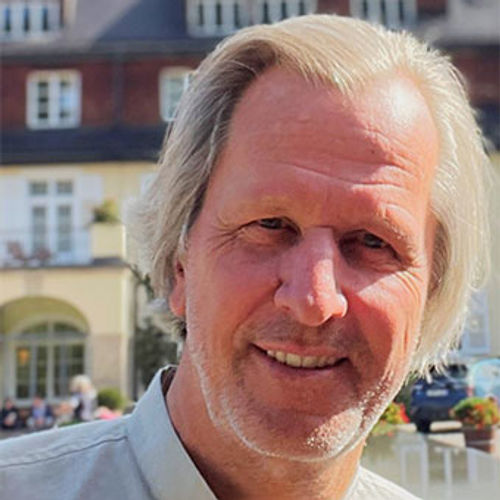There are signs to suggest that Schloss Elmau, in the Bavarian Alps, will align with your assumptions about luxury hotels. It belongs to Leading Hotels of the World. It’s isolated in a magnificent Alpine valley. The property has twice hosted G7 summits (2015 and 2022). It has a spa with a hammam, Japanese onsen and Pilates studio.
I lost track of how many swimming pools it has.
But it differs from traditional luxury in more ways than it conforms. It’s run by a philosopher-hotelier, Dietmar Mueller-Elmau; if you Google him, the quick bio that pops up describes him not as a hotelier but as a “writer.”
“I’m a bit unorthodox,” he told me, in what is surely a contender for understatement of the year.
There is no general manager at Schloss Elmau. There is a managing director, but the holder of that title was given it because, Mueller-Elmau said, “he’s talking to travel agents in New York, and they want to know that what you tell them will be delivered.”
“No one is a ‘sales guy,’” he continued, “because they promise but don’t deliver.”
Mueller-Elmau has disdain for titles because he feels they limit what staff might see as the possibilities of their jobs. This can result in both uneven service and exceptional service, often sequentially. For example, when I went to check in, the reception desk was unmanned. But when I reported this to the first staffer I saw, a bartender, he unhesitatingly took full responsibility to help me.
Staff meetings are atypical, Mueller-Elmau said. “Someone once said, ‘Can’t we have just one day without a new idea?’ I ask my staff to contradict me, to see if there’s a better idea. I want an atmosphere of liberty and respect for other opinions.”
Schloss Elmau has a long tradition of philosophy, political debate and, above all, music. It was founded by Mueller-Elmau’s grandfather, Johannes Muller, a philosopher who believed in the strength of communities and worked against a focus on self. He put a concert hall on the property and featured classical music with dancing.

In the early 1930s, his love of building communities attracted him to National Socialism, i.e., Nazism, but his closeness to his Jewish supporters and friends led him to reject its antisemitic tenets. This put him in the peculiar position of admiring Adolf Hitler but speaking out against his persecution of Jews. He pleased no one — the Nazis considered arresting him but decided he might have public relations value as a friend of Jews who supported Hitler.
After the war, Muller was arrested for his Nazi sympathies but was released after it was determined he had broken no laws.
Mueller-Elmau’s parents tried to preserve the communal spirit of the original project, but as a young man he rejected what he saw as its underlying dogma. He studied philosophy and computer science, ultimately developing the Fidelio Opera Reservation System, now used by thousands of hotels. He sold it to Micros, which in turn was acquired by Oracle.
In 1997, he successfully fought in court to acquire Schloss Elmau. A decade later, a fire devastated the property.
He rebuilt, but with additional goals in mind. Symposia and music (though not dancing) would remain central. The concert hall was one of the few parts of the property that survived the fire, and he instituted a “play to stay” program, offering classical and jazz musicians and singers time in the hotel in exchange for performing for guests. He neither pays the performers nor charges guests to see the shows.
The offer has attracted top names: In jazz, Herbie Hancock, Chick Corea and Gary Burton; the week I was there, star German baritone Christian Gerhaher and classical pianist Gerold Huber were performing.
A major goal of his was to make the hotel attractive for a G7 summit. This would require six presidential suites and two stories of a wing for the American president. “You can’t offer to host it,” Mueller-Elmau said. “They have to find you.”
Not only was Schloss Elmau found, but at the summits, Mueller-Elmau had the opportunity to hobnob with the leaders, joining them for a private dinner the final night in 2022.
There’s a menu of seasonal activities, from hiking and e-mountain biking to cross-country skiing, but a tremendous amount of energy goes into programming unique events on a regular basis. On the last night of my stay, Michelin-starred chef Dieter Muller was reunited with two very accomplished chefs who had worked with him early in their careers to prepare an eight-course meal for guests.
So, is Dietmar Mueller-Elmau primarily a philosopher? A writer? A hotelier? I came to believe he is first and foremost a philosopher. He applies his skills as an entrepreneur/impresario to leverage Schloss Elmau as the platform to make his dreams materialize. The result: the most interesting and unusual luxury hotel I’ve ever visited.
